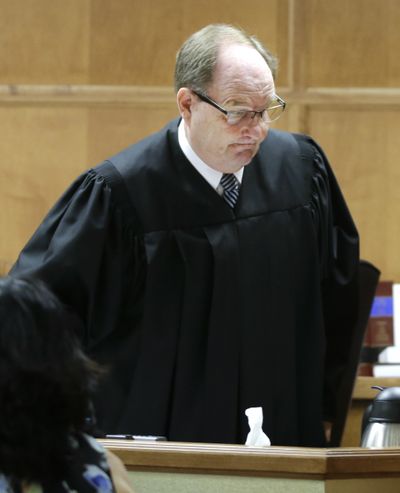Judge blocks Kansas ban on abortion procedure

TOPEKA, Kan. – A judge on Thursday blocked Kansas’ first-in-the-nation ban on an abortion procedure that opponents describe as dismembering a fetus, concluding that the law would likely present too big of an obstacle for women seeking to end their pregnancies.
Shawnee County District Court Judge Larry Hendricks sided with New York-based Center for Reproductive Rights, agreeing to put the law on hold while he considers a lawsuit filed on behalf of two Kansas abortion providers.
The center argued that the law would force women to undergo riskier procedures or forgo abortions. It also noted that the procedure is used in 95 percent of second-trimester abortions nationwide, and said previous U.S. Supreme Court rulings don’t allow a state to ban the most common method for terminating a pregnancy.
Hendricks said those arguments would likely prevail in court, even though alternative abortion methods still would be legal.
“The alternatives do not appear to be medically necessary or reasonable,” Hendricks said from the bench Thursday.
The law was supposed to take effect Wednesday.
Kansas Gov. Sam Brownback, a Republican and strong abortion opponent, was disappointed by the decision and believes “Kansas law should protect human dignity for all Kansans,” spokeswoman Eileen Hawley said.
The state argued that it has an interest in protecting the dignity of human life and promoting more humane alternatives. But Janet Crepps, senior counsel for the Center for Reproductive Rights, told the judge that such an argument would enable the Legislature “to assert the same interests and ban every single abortion method.”
The judge also said the Kansas Constitution independently protects abortion rights at least as much as the U.S. Constitution. Attorneys on both sides said such a ruling, if upheld, could eventually allow state courts to strike down restrictions affirmed by the U.S. Supreme Court.
The new law would ban doctors from using forceps, clamps, scissors or similar instruments on a live fetus to remove it from the womb in pieces. Such instruments are commonly used in dilation and evacuation procedures, but Kansas legislators said using them on a live fetus is inhumane.